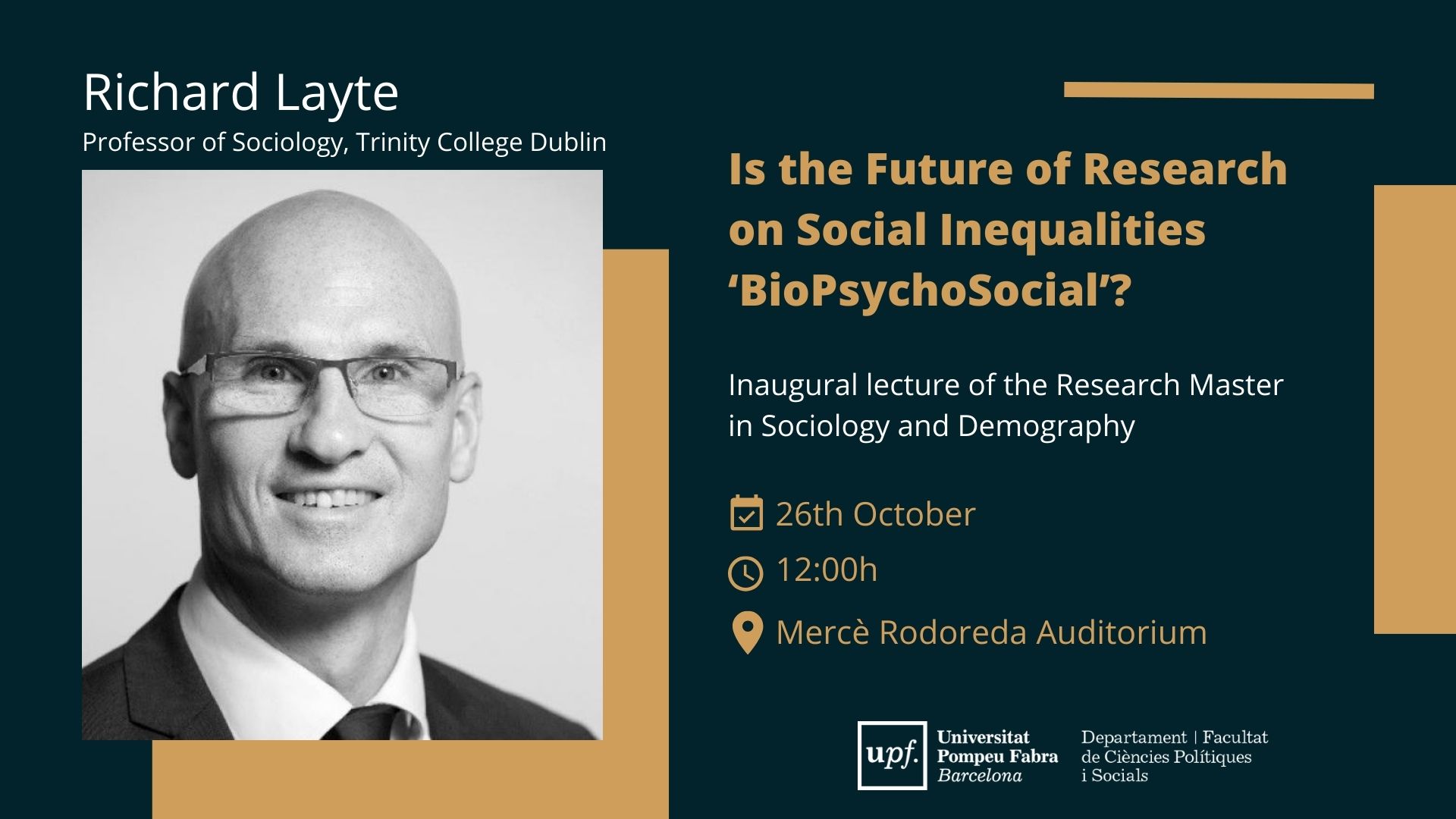26/10/23 - Inaugural lesson Master in Sociology and Demography: Richard Layte, professor of Sociology (Trinity College Dublin)
26/10/23 - Inaugural lesson Master in Sociology and Demography: Richard Layte, professor of Sociology (Trinity College Dublin)

Inaugural lecture of the Research Master in Sociology and Demography
Is the Future of Research on Social Inequalities ‘BioPsychoSocial’?
Speaker: Richard Layte, professor of Sociology (Trinity College Dublin)
Date: October 26, 2023
Time: 12.00 am
Audtori Mercè Rodoreda (Campus de la Ciutadella, Carrer Ramon Trias Fargas, 25-27)
Bio: Richard Layte is Professor of Sociology, Trinity College Dublin. Much of his work stems from a core interest in the structure of social and economic stratification in modern societies and its impact on individual life-chances, health and well-being. His research examines the fundamental processes which influence the distribution of health and well-being in societies and how these are shaped by political economy and the structure and functioning of health care systems. He has a particular interest in the intersection of social, psychological and biological sciences and works with colleagues across a range of disciplines. This is most evident in recent work for the LIFEPATH Project (https://www.lifepathproject.
Abstract: Over the last two and a half decades many countries have invested in cohort studies which collect longitudinal information on the same individuals over an extended observation period. The high cost of these projects means that they are usually inter-disciplinary endeavours which collect data on a large number of domains which are studied by multiple academic disciplines. This is an exciting research opportunity but it has also revealed the weakness of current theoretical models which were developed within siloed academic disciplines. As this paper shows, reality is usually far more complex and more interesting and more often than not involves the interaction of social and economic processes with biological and psychological variables. I use examples from recent studies using cohort data to illustrate the complex ways in which different variables interact and often produce unexpected results.

